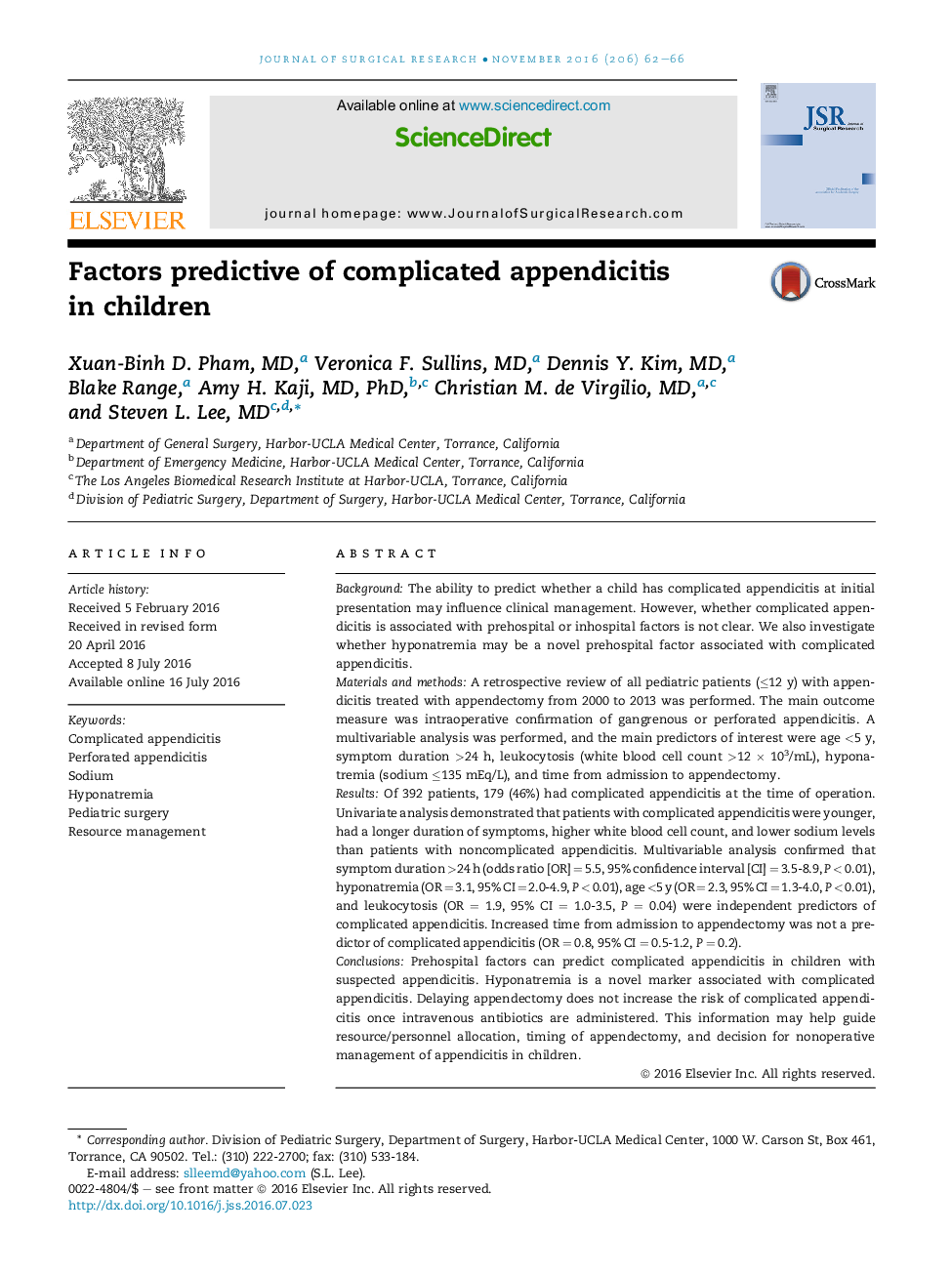| Article ID | Journal | Published Year | Pages | File Type |
|---|---|---|---|---|
| 4299082 | Journal of Surgical Research | 2016 | 5 Pages |
BackgroundThe ability to predict whether a child has complicated appendicitis at initial presentation may influence clinical management. However, whether complicated appendicitis is associated with prehospital or inhospital factors is not clear. We also investigate whether hyponatremia may be a novel prehospital factor associated with complicated appendicitis.Materials and methodsA retrospective review of all pediatric patients (≤12 y) with appendicitis treated with appendectomy from 2000 to 2013 was performed. The main outcome measure was intraoperative confirmation of gangrenous or perforated appendicitis. A multivariable analysis was performed, and the main predictors of interest were age <5 y, symptom duration >24 h, leukocytosis (white blood cell count >12 × 103/mL), hyponatremia (sodium ≤135 mEq/L), and time from admission to appendectomy.ResultsOf 392 patients, 179 (46%) had complicated appendicitis at the time of operation. Univariate analysis demonstrated that patients with complicated appendicitis were younger, had a longer duration of symptoms, higher white blood cell count, and lower sodium levels than patients with noncomplicated appendicitis. Multivariable analysis confirmed that symptom duration >24 h (odds ratio [OR] = 5.5, 95% confidence interval [CI] = 3.5-8.9, P < 0.01), hyponatremia (OR = 3.1, 95% CI = 2.0-4.9, P < 0.01), age <5 y (OR = 2.3, 95% CI = 1.3-4.0, P < 0.01), and leukocytosis (OR = 1.9, 95% CI = 1.0-3.5, P = 0.04) were independent predictors of complicated appendicitis. Increased time from admission to appendectomy was not a predictor of complicated appendicitis (OR = 0.8, 95% CI = 0.5-1.2, P = 0.2).ConclusionsPrehospital factors can predict complicated appendicitis in children with suspected appendicitis. Hyponatremia is a novel marker associated with complicated appendicitis. Delaying appendectomy does not increase the risk of complicated appendicitis once intravenous antibiotics are administered. This information may help guide resource/personnel allocation, timing of appendectomy, and decision for nonoperative management of appendicitis in children.
